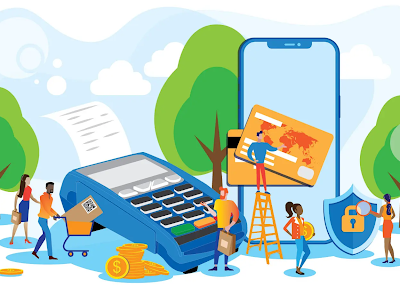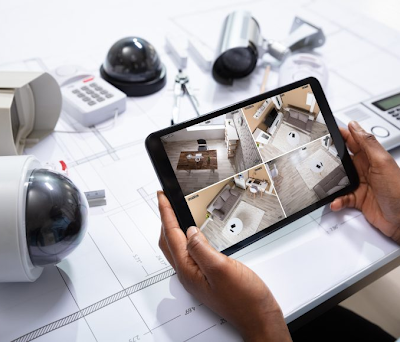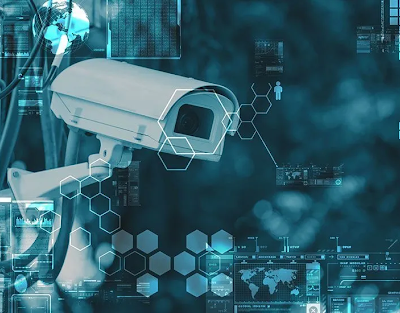There are numerous ways in which our security in the healthcare system can be improved. Nowadays Data security within the health sector is a difficult task. Medical professionals and the contacts who are connected to them such as business contacts must find the right balance between safeguarding patient confidentiality and managing one.
Even though protected health information (PHI) is one of a user’s greatest delicate confidential communications, the regulations for medical providers and other organizations that manage, use, or convey patient records are including stringent regulatory standards that are accompanied by stiff fines and jail time if they aren’t followed.
Why is Healthcare Security Necessary?
Security should always be a great priority whether it is linked to healthcare or a person’s personal life. It should always be on top of the checklist of the consumer and the producer. In the healthcare sector, security is necessary because there is a ton of crucial information that can be a target for malicious cyber attackers.
This can in turn ruin the reputation of a well-established healthcare department.
In the following article, some key points can make you understand the importance of data security in the healthcare sector.
7 Best Practices You Can Do to Maintain Healthcare Security:
Malware assaults, particularly targeting medical businesses, are now on the rise. In malware infections, cybercriminals generally target the healthcare industry in the anticipation that the organization would pay a bribe.
Since medical info can indeed be extremely significant on the black market, healthcare firms are indeed attacked by information leakage events. This is why it’s increasingly crucial than ever before to safeguard your business by enhancing your health – care safety.
Here are some tips for strengthening healthcare security which are presented underneath to assist how to get there.
Email Security Measures:
For pharmaceutical firms, email security measures are often a concern, it is never out of the picture for them. Criminal groups are attracted to certain objectives which include confidential healthcare data and medication data because they are lucrative.
To guard against intrusions, email security mechanisms with features like URL filtering and attachments inspection are necessary. Two or more authentication factors are a useful tool for securing mail servers.

Companies have built different solutions which can be implemented based on varying amounts of safety which are further based on including criteria. A physician accessing patient records from the outside of the facility, for illustration, could be asked to log in using numerous kinds of identification while accessing from within the institution can simply involve one.
Endpoint Security:
Several care providers recently switched to employing portable freelancers. Enterprise devices are being phased out in favor of BYOD rules. The items which are owned by an employee are not as protected as systems supplied and administered by a hospital’s IT department.

Endpoint security mechanisms should be able to safeguard these devices for healthcare businesses. Online security services can help secure information in BYOD circumstances. Many healthcare businesses now utilize cloud-based online security technologies to safeguard apps no matter where they are or what type of device they are using.
Zero-Trust Framework:
In the present context, several healthcare institutions which haven’t created a security strategy that incorporates negligible design are floundering. Customers must authenticate their credentials to obtain specific information services in a minimal framework.

Perpetrators are hunting for accounts that will allow attackers to view data from peer-to-peer servers. This degree of confidence among hosts is not provided by zero confidence. This method eliminates user error and limits the possibility of threats like ransomware spreading from one system to another.
Disaster Recovery Solution:
So Most personnel can’t foresee contingency planning to be part of law enforcement two years ago, but that mindset has shifted. Cybercrime had also rendered cybersecurity resilience a must-have.

As a security best practice, care providers should have an effective disaster recovery strategy in place, as well as emergency response strategies to safeguard multi-tenancy resources.
Multi-Factor Authentication:
Before viewing confidential material, users must enter multiple login credentials (MFA) (i.e. username and password in combination with security questions or a one-time PIN). MFA prevents unauthorized access to your company’s data.

That’s because if a hacking attempt compromises an individual’s login information, a hacker will be unable to extract content until they have entry to the individual’s additional usernames and passwords.
Network Traffic Filtering:
Installing a network activity monitor is yet another crucial defense step to examine. By establishing a NetFlow blocker, you can stop people from visiting potentially dangerous domains while being on your connection, lowering the likelihood of their being sent to another fake website if customers engage in a fraudulent connection.

Risk Assessments:
Whilst maintaining auditing might assist in determining the origin as well as other crucial facts of an occurrence once it occurred, preemptive management is also critical.
Periodic hazard identification can reveal weaknesses or negative spots in a pharmaceutical institution’s cybersecurity, as well as deficiencies in staff training, deficiencies in suppliers’ and trade associates’ safety postures, as well as other problem areas.

Healthcare professionals and their professional colleagues can effectively prevent expensive data leakage and many other negative consequences of a security breach, such as adverse publicity and legal liabilities, by risk assessment and analysis across their organization regularly to see for and prevent threats.
Conclusion:
The Healthcare sector is crucial. This makes it the most attack-able sector which can easily become a victim of malware abusers. This information is so crucial that it becomes an important bait.
Henceforth it is important for healthcare centers and different clinics that they can be sure of their patient’s data security.
If a person’s data is not secure or is in danger that makes the individual a bait to cybercriminals and also the reputation of the institution comes down. Henceforth, healthcare providers should always be aware of these types of dangers so that their consumer’s data remain safe and their respectable reputation does not colleague.
So before and always be well informed through these types of articles so that you can keep yourself and your colleagues up to date on the dangers of the present and the future.





